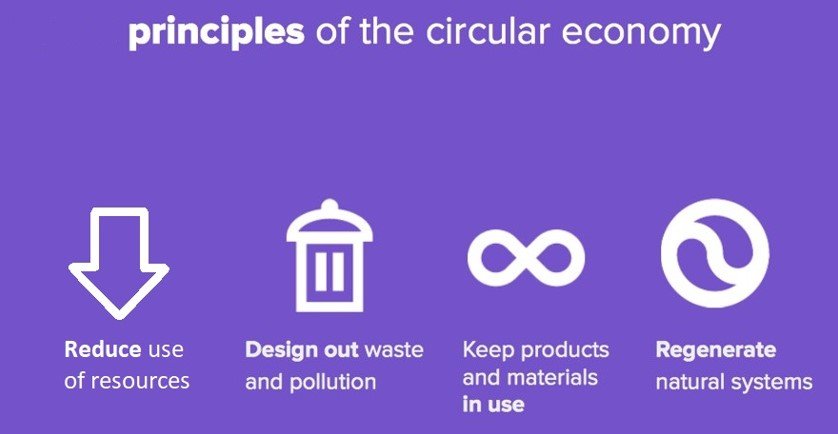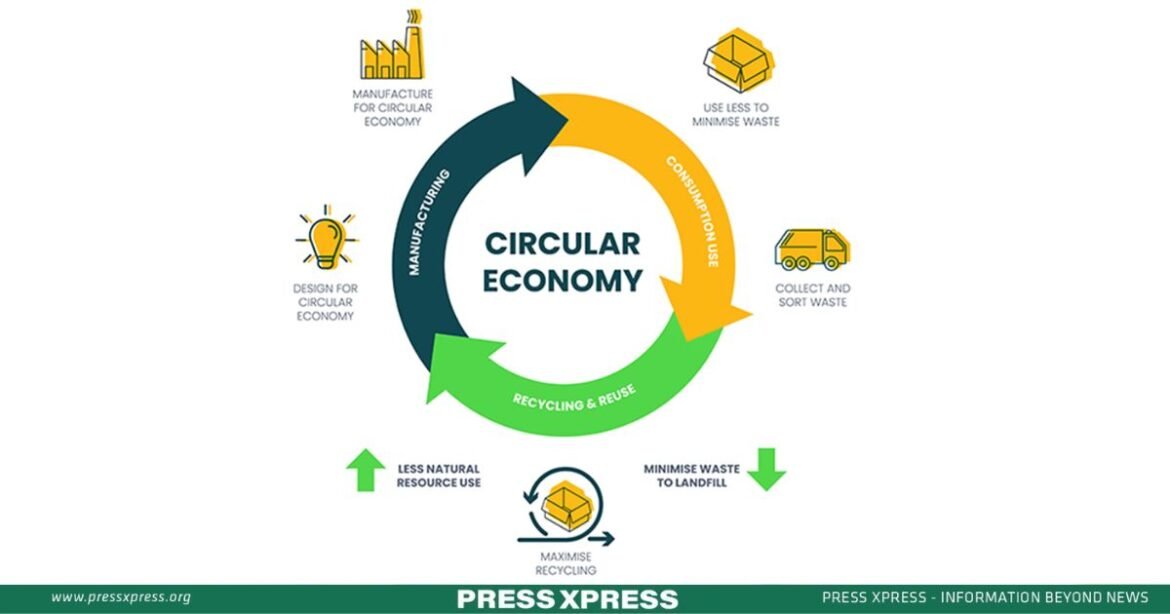The circular economy has become a central point in contemporary political discourse, emphasizing the need for reusing and reworking everything as a fundamental approach to resource conservation. However, this seemingly straightforward concept often lacks the depth of consideration it deserves. This exploration aims to unravel the complexities, focusing on defining the resources to be saved and contemplating the optimal scale for reusability.
You can also read: AL’s 2024 Promise: Disciplined Banking, Stable Economy
At the heart of the circular economy is a crucial question: what defines a resource worthy of preservation? While the immediate answer encompasses tangible materials and commodities, a broader perspective recognizes the Earth as the ultimate circular economy. The geological processes of continental plates shifting and reshaping exemplify a grand scale of recycling, where everything converges back to its elemental form. Although waiting millions of years for this process might be impractical, it underscores the inherent circularity ingrained in our planet.
Simultaneously, the scale at which we implement circular practices demands careful consideration. An insightful approach acknowledges that not all materials follow the same trajectory toward circularity. The key lies in identifying the appropriate scale for reuse, recognizing that economies of scale play a pivotal role in the efficient processing of materials.
Local Solutions, Global Impact
A uniform circular approach to all products may lead to inefficiencies. A fundamental insight emerges – different products demand different pathways to achieve optimal circularity. Large-scale recycling facilities may be the answer for robust materials like car bodies, redirecting them into steel mills for efficient processing. Conversely, the humble compost heap at the bottom of the garden might be the ideal destination for food scraps, showcasing how localized solutions can enhance circular practices.
The journey towards a circular economy requires flexibility over time. Some products, such as used electronics, may find their optimal circular pathway in temporary hibernation – buried in the ground, waiting for the right moment to be mined for precious metals. Embracing this temporal flexibility allows us to redefine what circularity means, breaking free from immediate solutions and adopting a more strategic, long-term perspective.
The intricacies of resource definition pose a challenge, particularly for a certain breed of economists. The prevailing notion restricts resources solely to tangible entities like cotton, water, wool, and fuel – a perspective that is not just inaccurate but objectionable. Fundamental economic wisdom contends that our world is one of scarce resources, encompassing not just physical elements but also human labor and capital.
To truly embrace the essence of economics, we must recognize the universality of scarcity. All resources, whether material or abstract, are finite – from the raw materials that shape our physical world to the human effort and financial capital that fuel our endeavors. Economic prudence, then, dictates that we be judicious with all resources at our disposal.
The Crucial Role of Broad-Spectrum Economizing
The rationale behind this broad-spectrum economizing is self-evident. The essence of economics lies in acknowledging the scarcity of resources in our universe. By exercising economy across all fronts – be it raw materials, labor, or capital – we maximize our potential for wealth creation. Economizing is the linchpin of prosperity and lies at the core of any thriving economy.
However, a myopic focus solely on physical resources may inadvertently lead us astray. While it’s vital to be frugal with materials like cotton, we must also consider the potential repercussions on other invaluable resources such as labor and capital. For instance, the pursuit of reusing cotton waste may require a significant allocation of labor, potentially diverting this resource from other productive uses. In such cases, a rise in cotton reuse might be accompanied by a decline in overall output, as the diverted labor could have been utilized more efficiently elsewhere.

This nuanced perspective prompts us to think beyond the immediate gains of resource conservation. It challenges us to assess the interconnectedness of different resource types and encourages a holistic approach to the economy. As we traverse this intricate terrain, the climax of economic prudence unfolds not merely in the preservation of physical resources but in the meticulous stewardship of all resources, propelling us toward a richer and more sustainable future. After all, the true essence of a thriving economy lies in the art of being economical across the entire spectrum of resources at our disposal.
Where Sustainability Meets Profitability
The underlying logic is apparent, yet navigating the intricacies of resource calculation proves to be a formidable challenge. How do we effectively quantify our ecological impact? One approach involves heeding the calls of activists, but this may not offer an optimal solution. Another method, rooted in economic principles, involves using prices as indicators. If a product is more expensive, it inherently implies a greater consumption of resources – the cost encapsulates the resources invested in its production.
A critical observation surfaces in the realm of domestic waste recycling schemes across Europe. The majority operate at a financial loss, with the value of the recycled materials falling short of the costs incurred in the recycling process. Effectively, subsidies become a necessity. In essence, we find ourselves in a paradoxical situation – attempting to reduce resource consumption by recycling leads to an increase in total resource utilization. This counterintuitive outcome raises a crucial question about the efficacy of our current approach: is it sensible to escalate overall resource use in the pursuit of recycling specific physical resources?
The solution emerges in the form of a circular economy, where the reduction of physical resource consumption aligns with profitability. The true turning point occurs when we manage to use fewer total resources in the process. It’s not merely about recycling for the sake of recycling but rather restructuring our economic systems to ensure that conservation efforts are financially viable and ecologically sustainable.
However, the prospect of urging businesses to be profitable lacks the excitement that might capture attention. Encouraging profitability is hardly groundbreaking advice. Yet, embedded within this seemingly mundane directive lies a profound truth – the very essence of a circular economy transcends routine business advice. It symbolizes a transformative shift towards sustainability, profitability, and ultimately, a future where resource efficiency isn’t just a cost but a lucrative venture.


